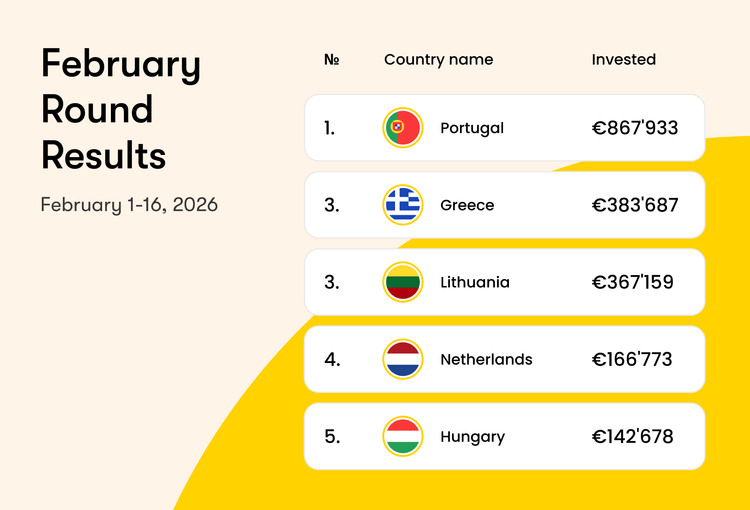Προσοχή των επενδυτών: Επενδυτικές Απάτες: Αναγνωρίζοντας και αποφεύγοντας τις επενδυτικές απάτες
Οι επενδυτικές απάτες, που υπόσχονται γρήγορο πλούτο, γίνονται όλο και πιο συχνές μεταξύ των επιτηδείων, εκμεταλλευόμενοι μια θεμελιώδη ανθρώπινη αδυναμία. Παρόλο που ο αριθμός των θυμάτων είναι επί του παρόντος μικρότερος από άλλους τύπους απάτης, όπως οι απάτες πωλήσεων και οι απάτες ταυτότητας, οι επενδυτικές απάτες αντιπροσωπεύουν σχεδόν το ήμισυ όλων των απωλειών από την ηλεκτρονική απάτη. Ευτυχώς, υπάρχουν ορισμένα σημάδια που πρέπει να προσέξετε και που μπορούν να σας βοηθήσουν να αποφύγετε την εξαπάτηση.

Οι επενδυτικές απάτες, που υπόσχονται γρήγορο πλούτο, γίνονται όλο και πιο συχνές μεταξύ των επιτηδείων στο διαδίκτυο, εκμεταλλευόμενοι μια θεμελιώδη ανθρώπινη αδυναμία. Αν και ο αριθμός των θυμάτων είναι επί του παρόντος χαμηλότερος από άλλους τύπους απάτης, όπως οι απάτες πωλήσεων και οι απάτες ταυτότητας, οι επενδυτικές απάτες αντιπροσωπεύουν σχεδόν το ήμισυ όλων των απωλειών από την ηλεκτρονική απάτη. Ευτυχώς, υπάρχουν ορισμένα σημάδια που πρέπει να προσέξετε και που μπορούν να σας βοηθήσουν να αποφύγετε την απάτη.
Κοινά είδη επενδυτικής απάτης
Η απάτη συγγένειας αναφέρεται σε μια απατηλή δραστηριότητα κατά την οποία οι απατεώνες εξαπατούν άτομα που ανήκουν στην ίδια εθνική, θρησκευτική, επαγγελματική ή κοινοτική ομάδα με αυτούς. Συνήθως, οι απατεώνες κερδίζουν την εμπιστοσύνη των θυμάτων πουλώντας αρχικά τα προϊόντα ή τις υπηρεσίες τους σε μερικά εξέχοντα μέλη της ομάδας.
Ένα Σύστημα Πόνζι είναι μια μορφή απάτης όπου οι επιχειρηματίες εξοφλούν τα χρέη τους προς τους επενδυτές όχι μέσω πραγματικών εσόδων, αλλά με τη στρατολόγηση όλο και περισσότερων ανθρώπων για να ενταχθούν στην πυραμίδα. Το σύστημα είναι βιώσιμο όσο η ροή των νέων επενδυτών συνεχίζει να αυξάνεται.
Ένα σχέδιο "pump-and-dump" περιλαμβάνει τη διάδοση ψευδών πληροφοριών για τη διόγκωση των τιμών των μετοχών, ακολουθούμενη από την πώληση των μετοχών σε διογκωμένες τιμές, με αποτέλεσμα η αξία της μετοχής να πέφτει και οι επενδυτές να χάνουν χρήματα.
Ένα σχέδιο δωματίου ανάκτησης στοχεύει σε προηγούμενα θύματα επενδυτικής απάτης προσφέροντας να βοηθήσει στην ανάκτηση των απωλειών τους με αντάλλαγμα πρόσθετη πληρωμή ή άνοιγμα λογαριασμού. Εάν ζητείται προκαταβολή, είναι σαφές σημάδι απάτης 'recovery room'.
Απάτες κλώνων Χρησιμοποιούν ψεύτικους ιστότοπους και λογοτεχνία που μοιάζουν με νόμιμες εταιρείες για να πουλήσουν άχρηστες επενδύσεις. Οι απατεώνες θα προσπαθήσουν να σας πείσουν ότι εργάζονται για μια γνήσια εταιρεία και χρησιμοποιούν τακτικές πώλησης με υψηλή πίεση για να σας πείσουν να αγοράσετε ‘επενδύσεις'. Αυτές οι ‘επενδύσεις’ είναι άχρηστες και συχνά δεν προσφέρονται καν από την εταιρεία που προσποιούνται ότι είναι.
Πώς να αναγνωρίζετε τις επενδυτικές απάτες
1) Η εγγύηση υψηλών αποδόσεων με χαμηλό ή καθόλου ρίσκο
Όλες οι επενδύσεις ενέχουν κίνδυνο. Όσο υψηλότερη είναι η υποσχόμενη απόδοση, τόσο υψηλότερος είναι και ο κίνδυνος. Να θυμάστε ότι αν ακούγεται πολύ καλό για να είναι αληθινό, συνήθως δεν είναι αληθινό.
2) Τακτικές πωλήσεων υψηλής πίεσης
Οι τακτικές πίεσης, που κυμαίνονται από περιορισμένες προσφορές μέχρι δώρα ή εκπτώσεις με περιορισμένο χρόνο, χρησιμοποιούνται συχνά σε επενδυτικές απάτες. Στόχος είναι να σας κάνουν να δεσμεύσετε τα χρήματά σας χωρίς να το σκεφτείτε.
3) Ανεπιθύμητη επαφή
Οι νόμιμες επενδυτικές εταιρείες δεν τηλεφωνούν σε ανθρώπους από το πουθενά για να τους προσφέρουν επενδυτικές ευκαιρίες. Εάν επικοινωνήσουν μαζί σας απροσδόκητα, αυτό είναι ίσως η μεγαλύτερη κόκκινη σημαία που πρέπει να γνωρίζετε. Επιπλέον, οι εν λόγω εταιρείες δεν σας επιτρέπουν να τις καλέσετε πίσω.
4) Ηλεκτρονικά μηνύματα και ενημερωτικά δελτία με ασαφείς πηγές
Τα μηνύματα ηλεκτρονικού ταχυδρομείου επενδυτικής απάτης μπορεί συχνά να περιέχουν ορθογραφικά ή γραμματικά λάθη. Ένα άλλο προειδοποιητικό σημάδι είναι αν σας ζητούν να επισκεφθείτε μια διεύθυνση URL ή να ανοίξετε ένα συνημμένο αρχείο.
5) Περίπλοκες εξηγήσεις ή ιδιαίτερα πολύπλοκη ορολογία
Οι απατεώνες δουλεύουν σκληρά για να ξεγελάσουν το ένστικτό σας με πολύπλοκα έγγραφα και ρυθμίσεις που φαίνονται νόμιμες αλλά δεν βγάζουν νόημα.
Πώς να προστατευτείτε από την απάτη
Πρώτον, κάντε ερωτήσεις και ζητήστε πληροφορίες. Αν κάποιος σας πιέζει να επενδύσετε χωρίς να σας δώσει αρκετές λεπτομέρειες, να είστε προσεκτικοί. Αφιερώστε χρόνο για να ερευνήσετε την εταιρεία, συμπεριλαμβανομένων των ιδιοκτητών, των διευθυντών και των μελών της διοίκησης, για να βεβαιωθείτε ότι είναι νόμιμη και αξιόπιστη. Είναι επίσης σημαντικό να είστε επιφυλακτικοί απέναντι σε ανεπιθύμητες κλήσεις, μηνύματα ηλεκτρονικού ταχυδρομείου ή γραπτά μηνύματα, καθώς αυτά μπορεί να αποτελούν προσπάθειες κλοπής των προσωπικών ή οικονομικών σας πληροφοριών. Ποτέ μην μοιράζεστε τους αριθμούς λογαριασμών σας, τα ονόματα χρηστών, τις συνδέσεις, τους κωδικούς πρόσβασης ή τους προσωπικούς αριθμούς αναγνώρισης με κανέναν. Εκτός από τη διεξαγωγή της δικής σας έρευνας, μπορεί να είναι χρήσιμο να ελέγξετε τις διαδικτυακές κριτικές και τα σχόλια άλλων επενδυτών για να πάρετε μια αίσθηση της φήμης της εταιρείας. Τέλος, εξετάστε το ενδεχόμενο να ζητήσετε ανεξάρτητες οικονομικές συμβουλές από έναν έμπιστο σύμβουλο για να λάβετε μια αντικειμενική γνώμη για οποιαδήποτε επενδυτική ευκαιρία.
Πώς η Scramble διατηρεί την εμπειρία σας ασφαλή
Ως πλατφόρμα, είμαστε υπερήφανοι που συνεργαζόμαστε με τις Startup Estonia, LHV Bank, Veriff, TGS Baltic και Grant Thornton. Μας υποστηρίζουν ιδρυτές και ανώτερα στελέχη που συνδέονται με σπουδαίες εταιρείες όπως η Wise, το eBay, το Facebook, η Skype, η Pipedrive, η Starship, η Miro, η CoffeeMeetsBagel, η FJ Labs κ.ά.
Ενθαρρύνουμε τους επενδυτές να μοιραστούν τις εμπειρίες και τα σχόλιά τους με την πλατφόρμα μας, δημοσιεύοντας μια κριτική στο Trustpilot. Έτσι, μπορείτε πάντα να πάρετε μια πραγματική γνώμη από τους επενδυτές μας για να σας βοηθήσουμε να πάρετε την τελική σας απόφαση.
Είμαστε ανοιχτοί σε συζητήσεις. Μπορείτε να επικοινωνήσετε μαζί μας μέσω διαφόρων καναλιών, όπως WhatsApp, email, chat στον ιστότοπο, Skype και πολλές άλλες πλατφόρμες κοινωνικής δικτύωσης. Η ομάδα υποστήριξής μας είναι πάντα πρόθυμη να βοηθήσει.
Τέλος, μπορείτε να διαβάσετε για τους ιδρυτές μας και τις εταιρείες τους στην ιστοσελίδα μας. Στους πρόσφατους πελάτες μας περιλαμβάνονται οι AirSnax, The Gut Co, Reformed Characters, κ.ά.
Τελευταίες αναρτήσεις


